EM2WL is a lifestyle, not a “one-size-fit-all” set of rules. We often leave many areas “gray” when discussing the process (Paleo? Gluten free? Vegan? Intermittent Fasting? etc), because we want to encourage everyone, as individuals, to seek how to make the journey “theirs.” Recently, we received a Journey testimonial, that we felt was a perfect example of this. In fact, we loved Krystal’s story so much that we’ve invited her back to discuss how she — determined to fix her own metabolism — adapted EM2WL to her lifestyle, with great success.
EM2WL – How I Made It Work For Me
Krystal Kretschmer
 We are all different and we all need different things. But we all try the same approach to weight loss: eat less, exercise more, lose weight.
We are all different and we all need different things. But we all try the same approach to weight loss: eat less, exercise more, lose weight.
Fail.
I did this and it destroyed my health (little by little so I was relatively unaware as time went on and it worsened), and not only that, it made it harder for me after the fact, to be healthy and not gain back tons of fat.
This goes out to anyone who has done restricted calorie diets, high calorie deficits and effectively ruined their metabolism. The idea that “People who have been obese in their life, will need to live on a permanently calorie restricted diet in order to not gain back fat,” is NOT TRUE and doesn’t need to be preached. It is upsetting, defeating and it’s an unhealthy principle that does not need to be adhered to!
The more you eat, the healthier you are, simply because:
more food = more nutrients
I’m am not saying ‘eat more calories’ necessarily (but I am, just not to excess). More so, I am trying to say, ‘eat more nutrients’ and ‘eat more quality food’ to be healthy. Eat as much as you can and still remain true to your goals.
When I realized that I was living on 1600 calories and burning 3200 calories every day, for months and years (I never thought I burned that much so I thought my deficit was much smaller), I realized that that was just incredibly wrong. That was not healthy. I was suffering, unaware. I had adapted to the side effects that crept on over the years (bad moods, losing energy, poor workouts and an inability to progress) and just wasn’t aware of how much my health was being affected. I knew then that I needed to eat more. I was scared because if I was eating this little and not gaining or losing (and I was still trying to lose, for years, with no success – I couldn’t eat less, I lived with a permanent plateau) then surely if I consumed more calories I would gain weight, no?
NO! I believe that I avoided fat building by building muscle instead which has the added effect of increasing your metabolism with the more muscle mass you build. Eating more calories also means an increase in metabolic activity. I felt all of this as weeks passed and I began to feel better and better, and then just absolutely great!
 When I decided to start eating more, I had to console the part of my brain that truly believed that eating with a deficit was the only way (the part of me that had lived like that for years and years and years). I really just wanted to repair my metabolism and everything I read suggested eating more. To me, it seemed logical that if I had adapted to fewer calories, that more calories WOULD turn into fat and I obviously didn’t want that. Many other articles suggested that the second best way to increase your metabolism was to increase your muscle mass. So, those two principles in hand seemed a fitting pair! Also, everything I read said that it is next to impossible to put on muscle with a calorie debt. So, I decided I needed to change my focus from losing weight, to eating more and building muscle.
When I decided to start eating more, I had to console the part of my brain that truly believed that eating with a deficit was the only way (the part of me that had lived like that for years and years and years). I really just wanted to repair my metabolism and everything I read suggested eating more. To me, it seemed logical that if I had adapted to fewer calories, that more calories WOULD turn into fat and I obviously didn’t want that. Many other articles suggested that the second best way to increase your metabolism was to increase your muscle mass. So, those two principles in hand seemed a fitting pair! Also, everything I read said that it is next to impossible to put on muscle with a calorie debt. So, I decided I needed to change my focus from losing weight, to eating more and building muscle.
I researched body building and learned a few key things, for example:
EAT MORE PROTEIN Most sources suggest eating about 0.5g of protein per pound of body weight. I eat between 0.5 and 0.75g per pound. Don’t limit your (healthy) carbs, and I say this ONLY because eating that much protein means you are naturally going to cut your carbs anyway or else you would eat far too many calories. Initially, I went protein crazy and was eating too much protein and not enough complex carbs and I got, um, backed up, if you know what I mean. This may not ring true for everyone. I needed to increase my carb intake a bit and stuck strictly with complex carbs for ‘bowel regularity’, lol. Fibre keeps the system running efficiently and we want that for sure!
ZIGZAG YOUR CALORIES Every day eat a different amount of NET calories. And I have higher calorie days on my harder workout days. Also, I try to eat the majority of my calories before and after my workout. Before, so you can fuel an awesome, intense workout, and after to help repair and build muscle. Try to eat protein and complex carbs within 30 minutes of a good muscle-burning workout. When I say zigzag, I love this philosophy because plateaus are all about our body ADAPTING to our lifestyle. We need to keep it guessing. I ate a constant 1600 every day for ages and my body knew it and worked according to that. Increasing my calories and eating, say, 3000 one day, 2700 the next, 3200 the day after, 3000 the next, 2600 the day after, etc.. And TIMING those calories so my body has more calories to fuel workouts and become stronger, means that I am now telling MY BODY what I want it to do with those calories, and that is not to store them for later!
 The key with zigzagging is accuracy with numbers. I have a Body Media Fit armband which measures my caloric burn (95% accurately which is good enough for me) down to the minute. Most people use estimations to calculate their burns, or notoriously inflated machines that over-estimate your burns by hundreds of calories or more (I’ve seen this first hand, not once has a cardio machine ever underestimated my burns). For many, it would be far easier to stick with a static calorie goal every day rather than jump around, and if this works for you, then by all means, stick with what works for you! The concept of zigzagging is a valid philosophy, but again, honesty and accuracy are required.
The key with zigzagging is accuracy with numbers. I have a Body Media Fit armband which measures my caloric burn (95% accurately which is good enough for me) down to the minute. Most people use estimations to calculate their burns, or notoriously inflated machines that over-estimate your burns by hundreds of calories or more (I’ve seen this first hand, not once has a cardio machine ever underestimated my burns). For many, it would be far easier to stick with a static calorie goal every day rather than jump around, and if this works for you, then by all means, stick with what works for you! The concept of zigzagging is a valid philosophy, but again, honesty and accuracy are required.
SLEEP ENOUGH This is the predominant time that our body uses to build muscle. Make sure it has that chance
QUALITY AND QUANTITY With increased calorie output, our need for nutrients (the building blocks for creating new cells, i.e. muscle fibre) also increases. If you suspect at all, that you are not getting enough nutrients (and this can be possible with even the best of diets, because of day-to-day differences) then maybe consider a multivitamin. Take half in the morning, half at night because we can only use about that much at a time and after about 12 hours we’ve used up all that half-pill has to offer. If we’re going to build, we need the tools to do it, not just the energy.
If you are coming out of a high calorie deficit, implement your changes/increases slowly. I increased my calories by about 400 every couple of weeks and took a full 6 weeks to get up to my maintenance eating levels (around 3000 in and out per day, less on rest days but still aiming for balance with calories in, calories out). Zigzagging all the way!
You can’t change one single aspect of your lifestyle without compensating elsewhere. If you keep burning calories the same way throughout your day, you keep exercising the same and eating the same (just more), then your body is going to think “Everything’s the same, and I have more calories! Great! Let’s store these for later!” Boom, FAT.
If you outsmart your body and tell it you want to build muscle, not fat, and you feed it calories in order to work harder at the gym, and feed it after to repair and build the tissue it just micro-tore to pieces, the your body thinks “Oh, we are doing things differently. We need to be stronger so the next time we do this I don’t get so broken.” And boom, MUSCLE.
 I wanted reassurance from my body that I was building muscle and not fat. Initially, I gained a couple of pounds, which I expected but didn’t like. I stuck with it. The reassurance came from a few feelings:
I wanted reassurance from my body that I was building muscle and not fat. Initially, I gained a couple of pounds, which I expected but didn’t like. I stuck with it. The reassurance came from a few feelings:
DOMS Delayed Onset Muscle Soreness is a good pain we feel 24-48 hours after a good workout. It will be felt in the muscles that got worked the most and that is exactly where you will build more tissue. When we work our muscles hard, we tear them up a bit (in a microscopic way) and when we rebuild them, they get built back strong and a bit bigger. Over time, this effect exponentially increases our muscle mass and we grow.
ENERGY I felt I had more energy to put into workouts. I could work harder and longer. This was something that declined for me with a low-calorie diet and my workouts suffered and plateaued. My progress in the gym halted.
POST WORKOUT With a calorie deficit, I began to get very, very grumpy after workouts for about half an hour. I was so irritable and angry, even during my workouts. When I increased my calorie, this feeling subsided completely and I left the gym with a smile on my face again.
PROGRESS A few weeks into increasing my calories, I FINALLY was able to increase my weights at the gym, for the first time in months, even years. I am currently lifting more than I ever have. A couple of weeks later, I was able to increase again. Obviously, I was building muscle and getting stronger. This was one of the greatest reassurances I have had.
Measure your success with feelings as much as possible. Numbers are not going to tell you most of what you want to know, especially short term. In 45 days, it looks like I lost about 10 or 15 pounds, but I gained 0.88 pounds realistically, by building muscle and losing fat. My measurements didn’t change either. A photograph was all it took to make my hard work and success glaringly obvious. But still, during those 45 days, I stuck with my plan because I was feeling better, stronger and progressing.
And vice versa, if you feel 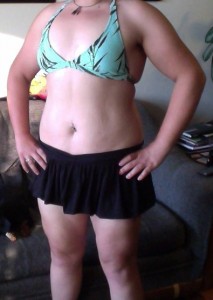 worse, you feel you have no energy, you feel cranky after or during workouts, you feel like you’re not progressing at the gym… If you feel poorly about any aspect of your lifestyle, try to find another way to your goals. There is always more than one road to success, though they are all paved with failures. We learn from our mistakes. Embrace them. As long as you stay the course, you will get there eventually. Keep your health and well-being at the front of it all and you will find health and happiness now and at the end, and you will enjoy your life now and now ‘when you get there. A quick, unhealthy fix to your weight issues will abandon you in the end and your hard work will have damaged you in the process, mentally and physically. I was there, and I’m never going back. Aim for a sustainable change, live the way you want to live the rest of your life and who wants to live with less than they should forever?
worse, you feel you have no energy, you feel cranky after or during workouts, you feel like you’re not progressing at the gym… If you feel poorly about any aspect of your lifestyle, try to find another way to your goals. There is always more than one road to success, though they are all paved with failures. We learn from our mistakes. Embrace them. As long as you stay the course, you will get there eventually. Keep your health and well-being at the front of it all and you will find health and happiness now and at the end, and you will enjoy your life now and now ‘when you get there. A quick, unhealthy fix to your weight issues will abandon you in the end and your hard work will have damaged you in the process, mentally and physically. I was there, and I’m never going back. Aim for a sustainable change, live the way you want to live the rest of your life and who wants to live with less than they should forever?
I have been on this lifestyle journey for 11 years now. I have tried high-calorie deficit diets twice and yes, I did lose weight. But, I also plateaued far above my goal each time and struggled, basically for 11 years, to get to the physical, mental and healthy state that I want to be in. More importantly, high calorie deficits work short term for weight loss, but they are not the only (or necessary) way. Nor are they the healthiest option. My health declined while living this way, I regained weight when I ‘returned to life’ and I never achieved what I set out to achieve in the first place. High calorie deficits failed me. Realizing that there is a healthy way to tone and sculpt this body, lose fat and feel great is something I wish I had known 11 years ago, but it’s never to late and this journey will never end. I truly love this lifestyle, it’s not restrictive, it’s liberating. To feel normal, to eat normally, for the first time in my entire life, is absolutely gripping and I can’t wait to see what tomorrow brings!
I cannot say this enough: We are all different. Our individual body is a composition of millions of different variables that all work together to create the human being that you are. What works for one person will likely never be the exact formula for someone else. Over the last 11 years, no one ever helped me or coached me. I searched for information and kept learning so I could understand the human body and dieting and lifestyles. I compiled knowledge, tried different things, I stuck with what worked and tried something new when results wore thin. If anything, I hope to bestow some information on someone that unlocks the next step to success, because that’s all I ever wanted for myself. When the pieces came together in just the right way, all the mistakes and struggles became worth it.
Coach your body and support it as though it is someone else with a mind of its own. It has good intentions for you, but there’s a disconnect between our wants and its wants. Work with it, not against it, find the balance and you will find your success!

Thanks SO much for sharing the key elements in your success, Krystal! We look forward to hearing more as your journey progresses!
We hope that this encourages everyone to do the research and spend this time on your journey learning as much as you can about your body. That’s what the process is all about. When you become the expert of YOU, there’s no stopping you! How have you made EM2WL work for you?
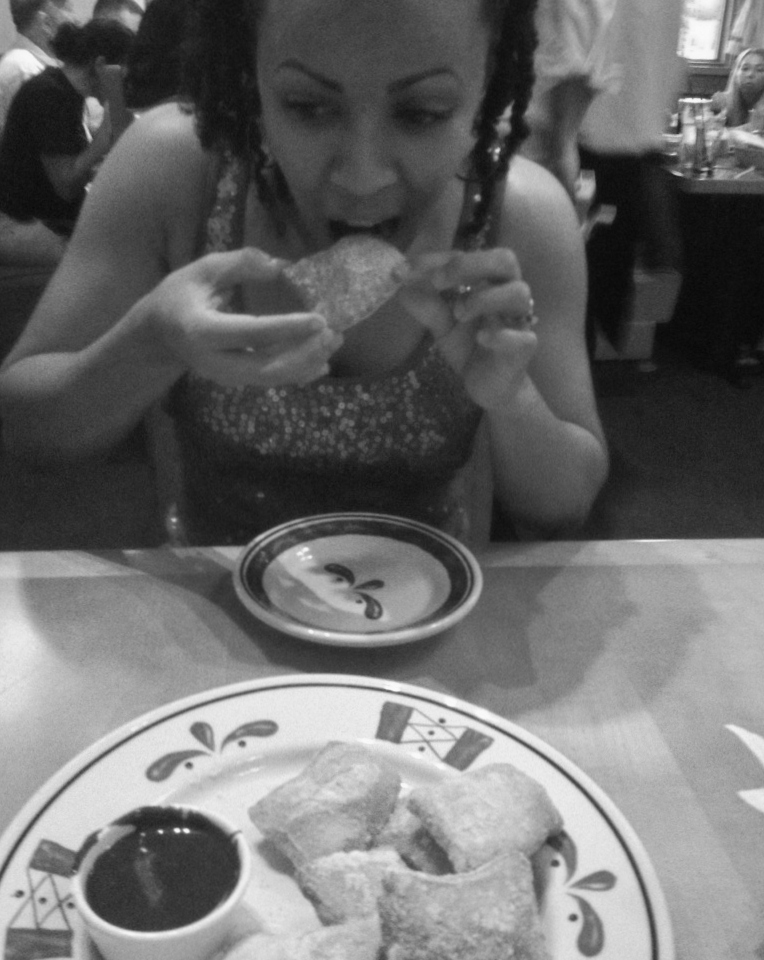
 A: I’m sorry that you see it that way, or that I come across as a muscle-bound “glutton” to you. It’s not just to be gluttonous …OK, maybe a little, lol…but more so because I know how much our metabolism slows with age. Weight goes up, muscle and bone mass decrease, and we have to eat LESS just to accomplish the same results. Everything that I do, is to DEFY that trend. So my aim is build as much muscle, and eat as much food as I can now. Then, when I get to the age where my peers are hardly eating, getting “softer,” and at higher risk for bone/muscle loss – I can still enjoy my life and have enough bone/muscle/brain strength to have as much independence as possible. This is very important to me, as I watch my own grandparents age and lose all independence. I am a very “future” focused person, in case that isn’t obvious.
A: I’m sorry that you see it that way, or that I come across as a muscle-bound “glutton” to you. It’s not just to be gluttonous …OK, maybe a little, lol…but more so because I know how much our metabolism slows with age. Weight goes up, muscle and bone mass decrease, and we have to eat LESS just to accomplish the same results. Everything that I do, is to DEFY that trend. So my aim is build as much muscle, and eat as much food as I can now. Then, when I get to the age where my peers are hardly eating, getting “softer,” and at higher risk for bone/muscle loss – I can still enjoy my life and have enough bone/muscle/brain strength to have as much independence as possible. This is very important to me, as I watch my own grandparents age and lose all independence. I am a very “future” focused person, in case that isn’t obvious.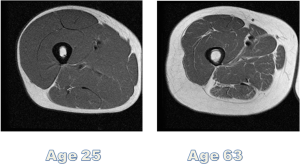







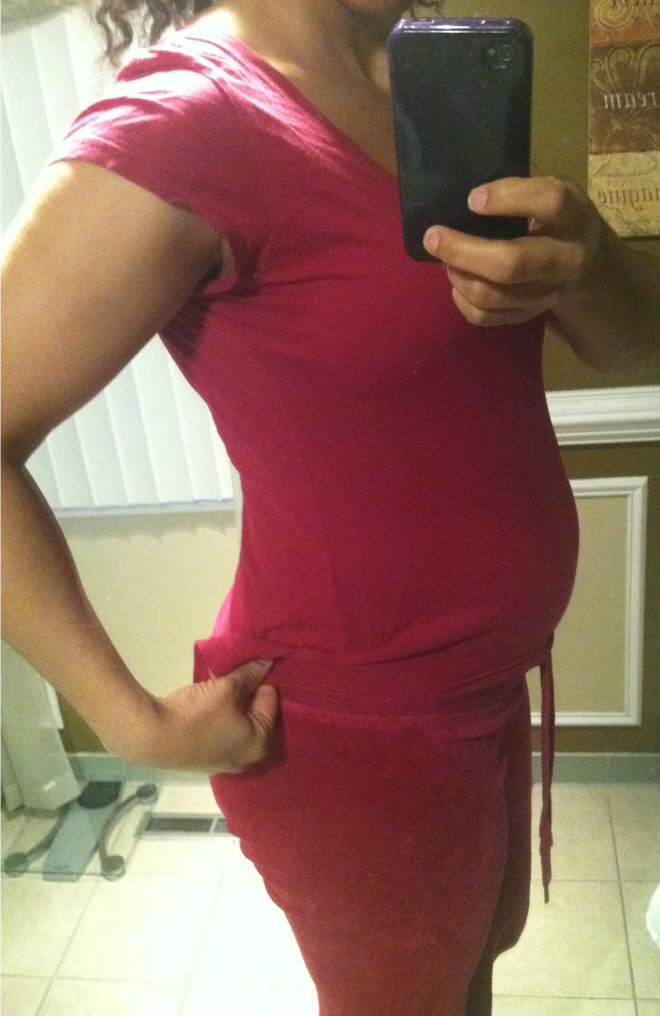



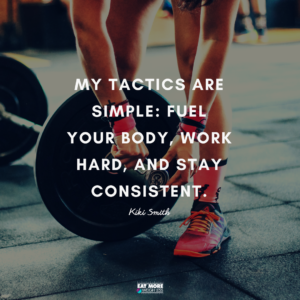 How to Pick a Personal Trainer…
How to Pick a Personal Trainer…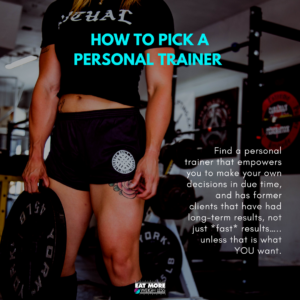 Another way a personal trainer can make that impact, is by telling you that your current cal intake (whatever it may be) is too high. This lowering of cals is almost a guaranteed drop in lbs within the first week or so, simply because the cals were high(er), and now they’re not. Having such a significant drop in lbs within the first week or so will buy the trainer MUCH more time with that client, because they have earned their trust. If they can quickly get you to drop weight, then long after you’ve stopped going to them, and gained the weight back, (because you’ve gone back to eating normal, and working out in your regular manner) you’ll always remember how you had “better” results when you worked with them. You’ll go back (at your higher cal intake) they will have you drop calories (again), while kicking your butt with the workouts. So as long as you stay with them, and dependent on them, you both “win.”
Another way a personal trainer can make that impact, is by telling you that your current cal intake (whatever it may be) is too high. This lowering of cals is almost a guaranteed drop in lbs within the first week or so, simply because the cals were high(er), and now they’re not. Having such a significant drop in lbs within the first week or so will buy the trainer MUCH more time with that client, because they have earned their trust. If they can quickly get you to drop weight, then long after you’ve stopped going to them, and gained the weight back, (because you’ve gone back to eating normal, and working out in your regular manner) you’ll always remember how you had “better” results when you worked with them. You’ll go back (at your higher cal intake) they will have you drop calories (again), while kicking your butt with the workouts. So as long as you stay with them, and dependent on them, you both “win.”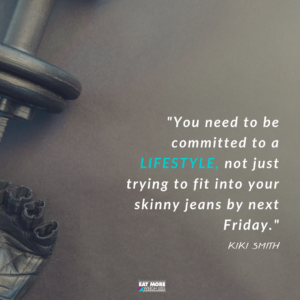 Although it’s harder to look a client in the eye and tell them to do the opposite of everything that they’ve read, and that they shouldn’t expect any results from working with me for at least the first month, it sets the standard for our relationship right off the bat. I let them know that I will not withhold any “secrets” from them in what they need to reach their goals,
Although it’s harder to look a client in the eye and tell them to do the opposite of everything that they’ve read, and that they shouldn’t expect any results from working with me for at least the first month, it sets the standard for our relationship right off the bat. I let them know that I will not withhold any “secrets” from them in what they need to reach their goals, 
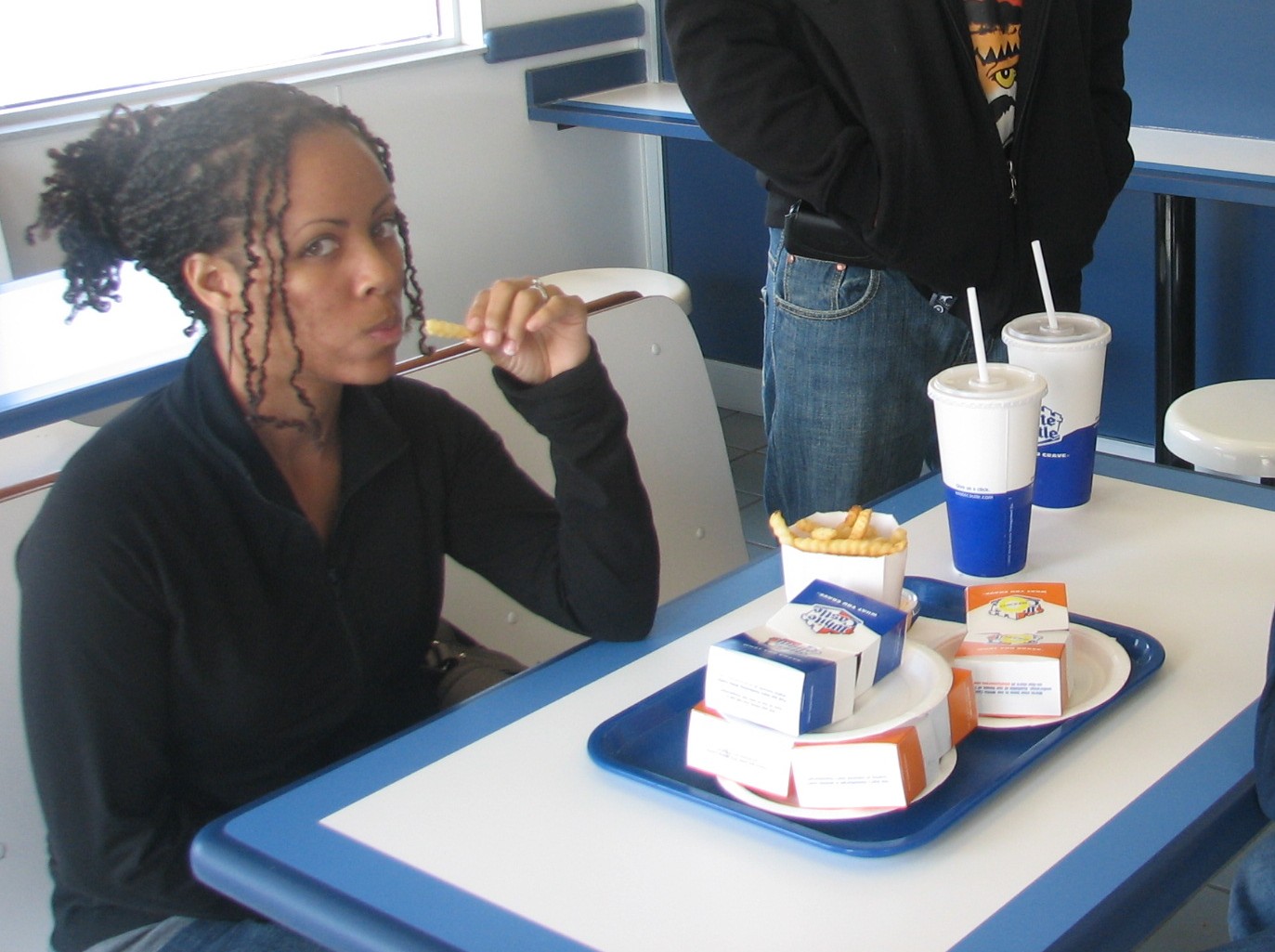

Recent Comments